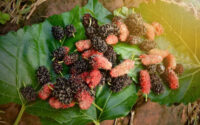Can my dog eat persimmon
When it comes to the intricate dietary needs of our canine companions, many dog owners find themselves pondering the safety and health benefits of various human foods. Persimmons, a sweet and delicious fruit enjoyed by many people, are no exception to this rule of inquiry. As responsible pet owners, it’s essential to understand not only the nutritional benefits of adding certain human foods to our dogs’ diets but also the potential risks and recommended serving sizes. With expert advice in mind, let’s delve into the world of dogs and persimmons, separating the facts from the myths, and determining whether this fruit is a treat or a no-go for our furry friends.
Evaluating Persimmon for Dogs
Table of Contents

Persimmons are an exotic fruit that can be spotted in grocery stores, particularly during the fall season. While they are non-toxic to dogs, evaluating whether persimmons are a suitable addition to a dog’s diet requires a careful examination. The type of persimmon, its ripeness, and the part of the fruit considered for consumption are all critical factors. For instance, the American persimmon is generally safer than the Asian variety, which contains higher levels of tannins and can be more problematic for dogs. Furthermore, the seeds and pits of persimmons present choking hazards and potentially harmful compounds.
Nutritional Benefits of Persimmons

Persimmons boast an array of nutritional benefits that can be advantageous for dogs when consumed in moderation. They are:
- Rich in vitamins, particularly Vitamin A and Vitamin C.
- High in dietary fiber, which can aid in digestion.
- A source of antioxidants, which help combat free radicals.
- Low in fat, making them a relatively low-calorie treat.
- Contain manganese, an essential mineral for dogs.
These nutrients can contribute to a healthy immune system and good vision, among other benefits. However, it’s crucial to note that a dog’s primary nutrition should come from a well-balanced, species-appropriate diet.
Risks of Feeding Persimmon to Dogs

Despite the nutritional benefits, there are several risks associated with feeding persimmons to dogs:
- The seeds and pits can cause intestinal blockages or obstructions.
- Persimmons can lead to stomach upset in some dogs, particularly if they consume too much.
- The high fiber content, while beneficial in small amounts, can cause diarrhea if overeaten.
- Tannins in unripe persimmons can lead to inflammation of the digestive tract.
- The sugar content, although natural, can contribute to dental problems and obesity if fed excessively.
It’s important to weigh these risks before introducing persimmons into your dog’s diet and to consult with a veterinarian if unsure.
Serving Sizes and Frequency

For those considering adding persimmon to their dog’s diet, moderation is key. A small dog might only handle a few small pieces of persimmon once a week, while a larger dog could consume a bit more. However, it should not replace a significant portion of their daily caloric intake. As a general rule:
- Start with a small piece to assess your dog’s reaction.
- Limit servings to no more than two to three times a week.
- Ensure the persimmon is ripe and free from seeds or pits.
Monitoring your dog for any signs of digestive distress after consumption is also advisable.
Alternative Dog-Friendly Fruits

For those who find the risks of persimmons too daunting, there are numerous alternative fruits that are safe and healthy for dogs. Some excellent choices include:
- Apples (cored and without seeds)
- Blueberries
- Bananas
- Watermelon (seedless)
- Strawberries
These fruits are generally safer and widely accepted as dog-friendly snacks. However, always introduce new foods gradually and in moderation.
Expert Advice on Dogs and Persimmon

Veterinarians and canine nutritionists typically advise that fruits like persimmons should be treated as occasional treats rather than dietary staples. When introducing any new food to a dog’s diet, it is essential to:
- Consult with a veterinarian, especially if the dog has known health issues.
- Observe the dog for any allergic reactions or gastrointestinal upset.
- Introduce the fruit slowly and in small quantities.
- Avoid feeding the dog any part of the fruit that could be a choking hazard.
- Consider the overall calorie intake to prevent weight gain.
Following this expert advice ensures that dogs can enjoy persimmons and other fruits safely and healthily.
Comparison Table: Persimmon vs. Alternative Fruits for Dogs
| Fruit | Seeds/Pits | High Fiber | Sugar Content | Dog-Friendly Notes |
|---|---|---|---|---|
| Persimmon | Yes | High | Moderate | Remove seeds/pits, serve ripe, in moderation |
| Apple | Yes | Moderate | Moderate | Core and remove seeds before serving |
| Blueberries | No | Moderate | Low | Safe and can be given freely |
| Banana | No | High | High | Peel and serve in moderation due to sugar |
| Watermelon | Yes (if not seedless) | Low | High | Remove rind and seeds, serve in moderation |
| Strawberries | No | Moderate | Moderate | Cut into small pieces, serve in moderation |
The inclusion of persimmons in a dog’s diet can offer a sweet treat with potential health benefits if served properly and sparingly. While the nutritional perks might be tempting, it’s essential to be mindful of the associated risks and to consider the array of safer, dog-friendly fruit alternatives. By consulting with a veterinarian and adhering to expert advice, dog owners can make informed decisions that prioritise their pet’s health and well-being. Whether you decide to introduce your four-legged friend to the exotic taste of persimmon or stick to more traditional fruits, moderation, and vigilance are the keys to a happy, healthy canine diet.


